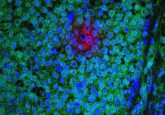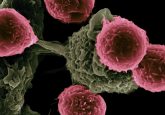NICE approve Alecensa as first-line treatment for ALK-positive advanced non-small cell lung cancer (NSCLC)

The UK’s National Institute for Health and Care Excellence (NICE) have issued approval for Alecensa® (alectinib) as the first-line treatment for untreated adult patients with anaplastic lymphoma kinase (ALK)-positive advanced non-small cell lung cancer (NSCLC).
Alecensa was previously available via the Early Access to Medicines Schemes; however, with this NICE approval all patients with ALK-positive NSCLC will now be able to access the drug via NHS routine funding. The drug, which was developed by Roche (Basel, Switzerland), has demonstrated improved outcomes compared with the standard of care, for example, a reduced risk of brain metastases – a common problem in these patients.
NICE’s decision was based on data from the Phase III ALEX study, which was presented at the recent American Society of Clinical Oncology meeting (ASCO; 1–5 June 2018, IL, USA). The trial demonstrated that Alecensa more than tripled the median, investigator-assessed progression-free survival, at 34.8 months for Alecensa compared with 10.9 months for the standard of care, crizotinib. Moreover, compared with crizotinib, Alecensa reduced the risk of disease worsening or death by 57% and reduced the risk of the tumors spreading to the central nervous system by 84%.
Simon Eayrs, Cancer Immunotherapy Lead for Roche UK, commented: “We are delighted that patients with this rare type of lung cancer will have access to alectinib via the NHS. ALK-positive NSCLC disproportionately affects younger people with a non-smoking history and is typically resistant to treatment. This announcement is testament to our ongoing commitment to working with NICE to give people living with advanced forms of lung cancer valuable extra time with friends, families and loved ones.”
Source: Roche press release





